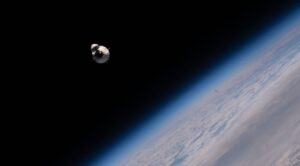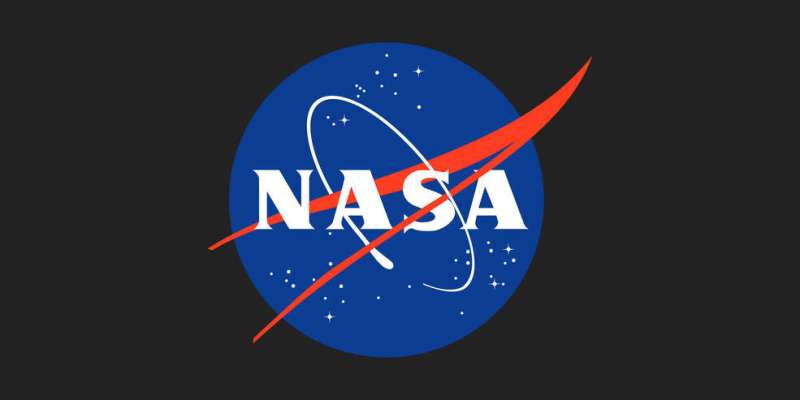Three Chinese astronauts return to Earth after six months in space
Saturday, 16 April 2022 06:28 Three Chinese astronauts returned to Earth on Saturday after 183 days in space, ending China's longest crewed mission as it continues its quest to become a major space power.
The Shenzhou-13 spacecraft was the latest mission in Beijing's drive to rival the United States, after landing a rover on Mars and sending probes to the Moon.
Live footage from state broadcaster CCTV showed the caps
Three Chinese astronauts returned to Earth on Saturday after 183 days in space, ending China's longest crewed mission as it continues its quest to become a major space power.
The Shenzhou-13 spacecraft was the latest mission in Beijing's drive to rival the United States, after landing a rover on Mars and sending probes to the Moon.
Live footage from state broadcaster CCTV showed the caps Oldest evidence of Mayan calendar found in Guatemala
Saturday, 16 April 2022 06:28 The oldest evidence of the Maya calendar has been excavated at San Bartolo, Guatemala, found among fragments of painted murals.
Acording to a new study, two fragments with a "7 deer" date notation date to between 300 and 200 BCE, based on radiocarbon dating.
Authors of the study said that the finding "represents a day in the 260-day divinatory calendar used throughout Mesoamerica
The oldest evidence of the Maya calendar has been excavated at San Bartolo, Guatemala, found among fragments of painted murals.
Acording to a new study, two fragments with a "7 deer" date notation date to between 300 and 200 BCE, based on radiocarbon dating.
Authors of the study said that the finding "represents a day in the 260-day divinatory calendar used throughout Mesoamerica NASA ready for Ax-1 return and Crew-4 launch
Friday, 15 April 2022 22:08
NASA says it’s gearing up for a rapid-fire series of events on the International Space Station that includes the return of a private astronaut mission and the launch of a new long-duration crew of American and European astronauts.
ReOrbit and TransAstra sign spacecraft development and logistics contracts
Friday, 15 April 2022 21:46 TransAstra, a provider of breakthrough orbital logistics and space domain awareness solutions, and ReOrbit, a provider of software-defined small satellites for beyond LEO missions, announced today that they have signed binding contracts for initial spacecraft development and orbital logistics services.
Under these contracts, TransAstra will provide mission definition and engineering analys
TransAstra, a provider of breakthrough orbital logistics and space domain awareness solutions, and ReOrbit, a provider of software-defined small satellites for beyond LEO missions, announced today that they have signed binding contracts for initial spacecraft development and orbital logistics services.
Under these contracts, TransAstra will provide mission definition and engineering analys Moon dust Neil Armstrong collected sells for more than $500,000
Friday, 15 April 2022 21:46 Moon dust Neil Armstrong collected in 1969 has sold for more than $500,000 at auction after NASA lost legal battles over its ownership.
Five samples of the NASA-verified moon dust and the NASA container they're held in from the Apollo 11 mission sold for $504,375 on Wednesday, which was far below pre-auction estimate of between $800,000 and $1.2 million, according to the auction house Bonh
Moon dust Neil Armstrong collected in 1969 has sold for more than $500,000 at auction after NASA lost legal battles over its ownership.
Five samples of the NASA-verified moon dust and the NASA container they're held in from the Apollo 11 mission sold for $504,375 on Wednesday, which was far below pre-auction estimate of between $800,000 and $1.2 million, according to the auction house Bonh Sols 3444-3445: The curious case of cross-cutting ridges
Friday, 15 April 2022 21:46 Tosol's plan is focusing on examination of the linear ridges that cross-cut the local terrain. These raised ridges look like boxes with their lids cut off and mostly buried in the local bedrock, and all we can see are the vertical box faces sticking up out of the ground.
How these structures actually form is an active area of investigation, and we hope the data we gather tosol will help us
Tosol's plan is focusing on examination of the linear ridges that cross-cut the local terrain. These raised ridges look like boxes with their lids cut off and mostly buried in the local bedrock, and all we can see are the vertical box faces sticking up out of the ground.
How these structures actually form is an active area of investigation, and we hope the data we gather tosol will help us Most distant star to date spotted - but how much further back in time could we see?
Friday, 15 April 2022 21:46 The Hubble Space Telescope has observed the most distant star ever seen - Earendel, meaning morning star. Even though Earendel is 50 times the mass of the Sun, and millions of times brighter, we would not normally be able to see it. We can see it due to an alignment of the star with a large galaxy cluster in front of it whose gravity bends the light from the star to make it brighter and more foc
The Hubble Space Telescope has observed the most distant star ever seen - Earendel, meaning morning star. Even though Earendel is 50 times the mass of the Sun, and millions of times brighter, we would not normally be able to see it. We can see it due to an alignment of the star with a large galaxy cluster in front of it whose gravity bends the light from the star to make it brighter and more foc Giant stars undergo dramatic weight loss program
Friday, 15 April 2022 21:46 Astronomers at the University of Sydney have found a slimmer type of red giant star for the first time. These stars have undergone dramatic weight loss, possibly due to the presence a greedy neighbour. Published in Nature Astronomy, the discovery is an important step forward to understanding the life of stars in the Milky Way - our closest stellar neighbours.
There are millions of 'red gia
Astronomers at the University of Sydney have found a slimmer type of red giant star for the first time. These stars have undergone dramatic weight loss, possibly due to the presence a greedy neighbour. Published in Nature Astronomy, the discovery is an important step forward to understanding the life of stars in the Milky Way - our closest stellar neighbours.
There are millions of 'red gia Webb will study formation, composition, clouds of distant worlds
Friday, 15 April 2022 21:46 The journey of commissioning the Webb telescope continues this week with the successful cooling of the Mid-InfraRed Instrument (MIRI), through the critical 'pinch point,' down to its final operating temperature of less than 7 kelvins (-447 degrees Fahrenheit, or -266 degrees Celsius). This was a precondition to completing the seventh and final stage of the mirror alignment process. The next step
The journey of commissioning the Webb telescope continues this week with the successful cooling of the Mid-InfraRed Instrument (MIRI), through the critical 'pinch point,' down to its final operating temperature of less than 7 kelvins (-447 degrees Fahrenheit, or -266 degrees Celsius). This was a precondition to completing the seventh and final stage of the mirror alignment process. The next step MAGIC telescopes observe nova explosion
Friday, 15 April 2022 21:46 Light on, light off - this is how one could describe the behavior of the nova, which goes by the name RS Ophiuchi (RS Oph). Every 15 years or so, a dramatic explosion occurs in the constellation of the Serpent Bearer. Birthplaces of a nova are systems in which two very different stars live in a parasitic relationship: A white dwarf, a small, burned-out and tremendously dense star - a teaspoon of
Light on, light off - this is how one could describe the behavior of the nova, which goes by the name RS Ophiuchi (RS Oph). Every 15 years or so, a dramatic explosion occurs in the constellation of the Serpent Bearer. Birthplaces of a nova are systems in which two very different stars live in a parasitic relationship: A white dwarf, a small, burned-out and tremendously dense star - a teaspoon of China Satellite Navigation Conference to highlight digital economy, intelligent navigation
Friday, 15 April 2022 21:46 The 13th China Satellite Navigation Conference will be held in Beijing in May, highlighting the digital economy and intelligent navigation, according to the China Satellite Navigation Office.
The conference will showcase the latest industrialization achievement of the BeiDou Navigation Satellite System (BDS), the office said.
Diverse events such as summit forums, academic exchanges,
The 13th China Satellite Navigation Conference will be held in Beijing in May, highlighting the digital economy and intelligent navigation, according to the China Satellite Navigation Office.
The conference will showcase the latest industrialization achievement of the BeiDou Navigation Satellite System (BDS), the office said.
Diverse events such as summit forums, academic exchanges, Shenzhou 13 astronauts ready to return
Friday, 15 April 2022 21:46 China's Shenzhou XIII mission crew have completed all of their tasks and will return to Earth, according to the China Manned Space Agency.
The agency said on Thursday night that the astronauts - Major General Zhai Zhigang, Senior Colonel Wang Yaping and Senior Colonel Ye Guangfu - will leave the Tiangong space station in due course. Their reentry capsule will touch down at the Dongfeng lan
China's Shenzhou XIII mission crew have completed all of their tasks and will return to Earth, according to the China Manned Space Agency.
The agency said on Thursday night that the astronauts - Major General Zhai Zhigang, Senior Colonel Wang Yaping and Senior Colonel Ye Guangfu - will leave the Tiangong space station in due course. Their reentry capsule will touch down at the Dongfeng lan Xi calls on Wenchang to build world-class spaceport
Friday, 15 April 2022 21:46 President Xi Jinping has called on the Wenchang Space Launch Center in the southern island province of Hainan to build itself into a world-class spaceport.
Xi made the remark on Tuesday afternoon as he visited the launch complex, the newest and southernmost of its kind in China.
Xi, who is also general secretary of the Communist Party of China Central Committee and chairman of the Ce
President Xi Jinping has called on the Wenchang Space Launch Center in the southern island province of Hainan to build itself into a world-class spaceport.
Xi made the remark on Tuesday afternoon as he visited the launch complex, the newest and southernmost of its kind in China.
Xi, who is also general secretary of the Communist Party of China Central Committee and chairman of the Ce NASA and Space Force cooperate on near Earth object data
Friday, 15 April 2022 19:29
NASA has hailed an agreement with the Space Force to share information on near Earth object impacts as a key step forward in planetary defense, even as the agency defers work on a mission it says is critical to tracking such objects.
NASA releases equity action plan to make space more accessible to all
Friday, 15 April 2022 16:10
In support of the Biden-Harris Administration's efforts to advance racial equity in the federal government, NASA has released its first-ever Equity Action Plan. The plan establishes key focus areas that will allow the agency to track progress toward improved diversity, equity, inclusion, and accessibility both internally and externally to NASA.
"At NASA, all of our missions depend on our steadfast commitment to equal opportunity," said NASA Administrator Bill Nelson. "The Equity Action plan deepens our commitment to further identify and remove the barriers that limit opportunity in underserved and underrepresented communities. This framework anchors fairness as a core component in every NASA mission to make the work we do in space and beyond more accessible to all."
The four focus areas the plan addresses are:
- Increasing integration and utilization of contractors and businesses from underserved communities and expanding equity in NASA's procurement process
- Enhancing grants and cooperative agreements to advance opportunities, access, and representation for underserved communities
- Leveraging Earth Science and socioeconomic data to help mitigate environmental challenges in underserved communities
- Advancing external civil rights compliance and expanding access to limited English proficient populations within underserved communities
NASA will lean into the focus areas by further analyzing and assessing feedback received from an initial request for information.

